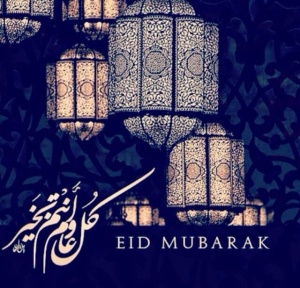https://myrihla.com/2017/08/17/why-we-dont-pray-when-were-on-our-period-a-reflection-on-allahs-attributes-as-the-merciful-and-the-creator/
I came across the post below on Buruj Lan-dan’s page on why we as Muslim women don’t pray when we’re on our monthly periods, and it’s a topic that’s been on my mind for a while so I wanted to share it with you adding my own reflections at the end.
Why don’t we pray when we are on our monthly cycles?
A dear friend of mine explained it to me and it blew me away. May Allah protect her always.
There is not a deed as great as the prayer. And no one is excused from it under any circumstances. Even men in battles are commanded to pray in whatever way they can.
But the only time a servant of Allah is entirely excused from praying and from even making up the missed prayers is when as a woman you suffer from all the difficulties that come with menstruation.
I love how my friend worded the wisdom behind it.
“Allah has mercy on you because He knows no one around you will”
Your boss doesn’t care if you come late to work because you were suffering from cramps in the morning. Your children don’t demand any less on those days of weakness and tiredness. Your husband doesn’t have any more patience with your mood swings when sadness or anger overwhelms you for no reason. When you step out, nobody knows how much your body either aches or how much your mind is distracted by incessant thoughts. You are on your own.
So, Allah the Most Merciful, Ar-Raheem, Ar Rahman, removes His obligation on you because no one else will.
We could’ve been commanded to make them up – if the reason was purely Taharah (purity) but we weren’t. He gives us a break when no one will.
The other time a woman is excused is when she has given birth. Her body, her mind labours to bring another life into the world and becomes occupied with taking care of it – and again Allah excuses her.
This is what makes me fall in love with Allah and Islam even more. For only Allah could know the intricate details of our struggle and give us what we need the most – mercy. – From Buruj Lan-Dan’s Facebook Page
My Reflection
It’s common for us to jokingly refer to our periods as holidays because we’re absolved from the responsibility of praying. After a few days however the effect quickly wanes and we find ourselves craving the doses of serenity that we get through prayer. One of the focal benefits of Salah is that it forces us to remember Allah SWT hence being away from it can sometimes make us feel like we’re no longer in that state.
Whenever I’m on my period, I’m reminded of the ayah below:
“We will show them Our Signs in the universe, and in their own selves until it becomes manifest to them that this (the Quran) is the truth” [Fussilat 41:53]
On the earth are Signs for those of assured Faith; as also in your own selves: will yet not then see?” [Al-Dhariyat 51:20 – 21]
In fact, my periods are a time when I am heavily conscious of Allah. Marvelling at the creation of my body and how perfectly it functions. Especially on months when I go through heavy periods, and I’m continually amazed at the way my body self-regulates. (No kidding, some days I feel like I’m gonna bleed out!) There are different ways in our lives that Allah reminds us that is Al-Khaliq, The Creator, and for me, my menstrual cycles are a special reminder of the one who has created me and created me in the best of forms.
I mean think about it, having regular menstrual cycles is a sign that the body is functioning normally, so remember to thank Allah for your health and the numerous blessings that he has given you through your body.
